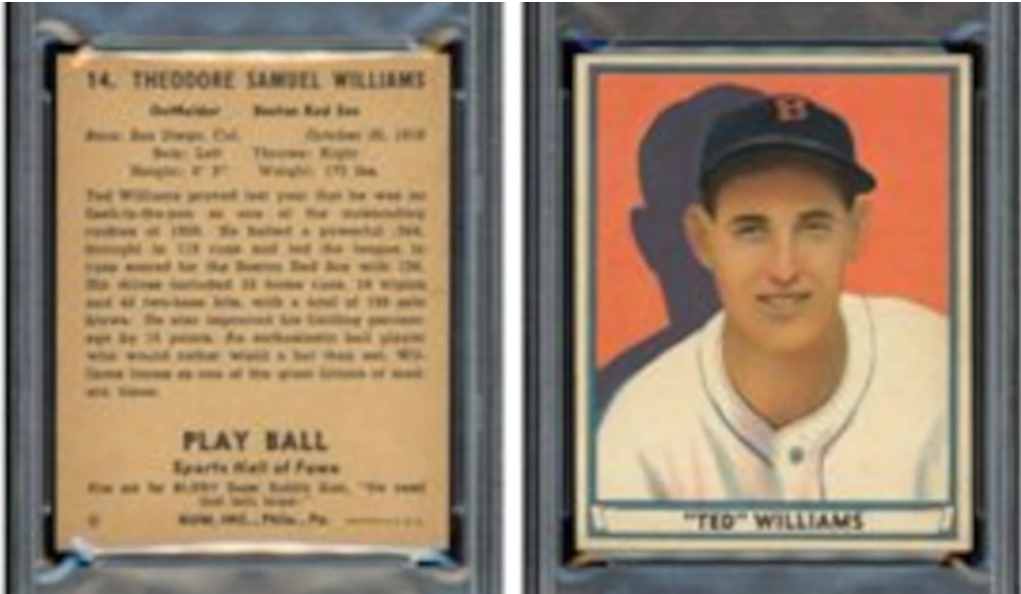In a peculiar intertwining of hospitality and high-stakes collecting, a lawsuit filed in Ohio seeks to bring justice and perhaps set precedence in the world of high-value collectible protection. The bone of contention? A package containing 54 precious baseball cards, a collector’s treasure, vanished mysteriously into thin air at Best Western’s Strongsville hotel in 2024. With this legal tussle, there’s more than just monetary compensation at stake; the incident highlights a larger issue plaguing hobbyists and collectors alike: the alarming increase in thefts of high-value sports cards.
Memory Lane Inc., a prominent auction house in California, is the plaintiff in question, seeking $2 million in damages from Best Western. The missing package included several iconic cards, notably a 1909 Ramly Walter Johnson and a 1941 Ted Williams, collectively appraised at nearly $90,000. Though FedEx could verify the delivery to the Best Western Plus, by the time a Memory Lane employee arrived, the package was nowhere to be found. One can only imagine the sense of dread upon discovering that the prized collectibles had disappeared, potentially forever.
Thanks to diligent investigation, it emerged that the culprit behind this heist was none other than hotel staffer Jacob Paxton. With a plot straight out of a whodunit novel, Paxton intercepted the shipment, passing it off to his accomplice, Jason Bowling. It’s a tale of deception worthy of cinematic adaptation. Eventually, most of the card collection was reclaimed—52 out of the 54—but not before causing considerable financial and reputational damage to Memory Lane. Alas, the sought-after Johnson and Williams cards remain elusive.
Justice caught up with Paxton, earning him a four-to-six-year prison sentence, while his co-conspirator, Bowling, was handed community supervision—perhaps a slap on the wrist given the breach of trust involved. Yet, for Memory Lane, the ramifications were not purely financial. The auction house’s business thrives on trust and reliability, elements that were marred by this incident, risking the sacrosanct reputation that rare collectibles can be reliably bought, sold, and traded.
Fast forward to July 2025, Memory Lane decided to take the legal route, filing a civil suit against Best Western International and its local operators. The crux of their argument? Negligence. Memory Lane contends that by employing an individual unfit to safely handle guest property, Best Western essentially disregarded the security necessary for such valuable items. This legal confrontation could indeed snowball into a broader conversation about the responsibilities and expectations placed upon hotels and their shipping partners, primarily when dealing with irreplaceable collectibles.
But hoteliers aren’t the only ones feeling the heat. Within the community, thefts have not been limited to quiet hotel lobbies. The National Sports Collectors Convention, an annual pilgrimage for enthusiasts, has found itself a target over the past two years. Coordinated thefts on the convention floor have seen some of the world’s most exclusive cards—think a 1951 Bowman Mickey Mantle rookie and a 1986 Fleer Michael Jordan rookie—disappear despite tightened security.
As the paper trail of this story unravels, the broader narrative turns to why sports cards, once considered valuable only in sentimental terms, have soared in financial worth. This uptick, naturally, draws the wrong sort of attention. With values on the rise, collectors and dealers are no longer taking chances. They are arming themselves with a slew of preventive measures—locked display cases, state-of-the-art surveillance systems, and comprehensive insurance policies—to guard their investments at shows and during transit. The era of casual handling is distinctly over; collectors now approach their hobby with the same careful consideration as safeguarding a Van Gogh or a Cartier necklace.
This litigation against Best Western could potentially set new benchmarks for accountability in this evolving realm. The stakes are such that any decision will likely ripple outwards, influencing how businesses across industries consider the stewardship of high-value goods.
The overarching message for those in the hobby is succinct yet powerful: the stakes have risen, and so has the need for robust security. Protecting valuable cardboard has matured beyond granddad’s attic into a serious affair, demanding the kind of meticulousness we reserve for the most esteemed works of art and jewels. Through the lens of this lawsuit, we’re reminded that while sports cards remain a bridge to our pasts, they also represent a serious business inexorably linked with modern crime.

